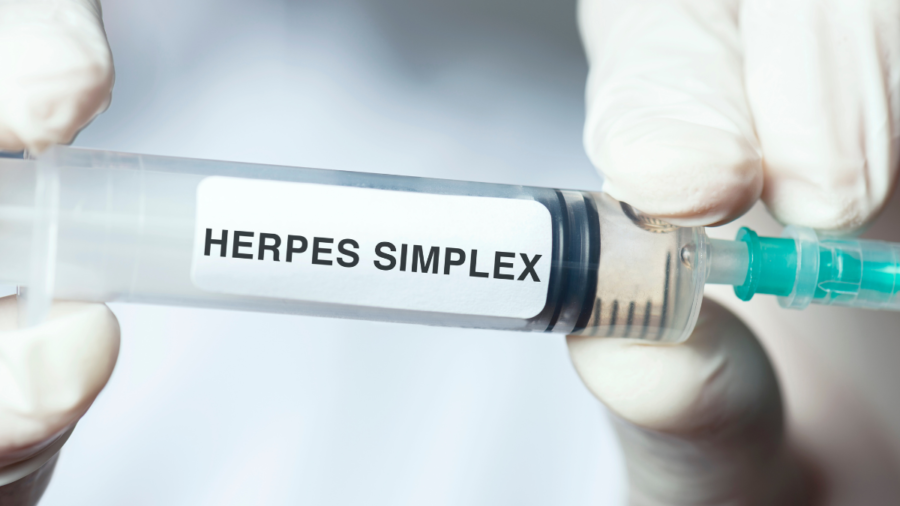The second article in MEFeater’s Dating in America series
Navigating the dating world comes with its own set of challenges, but dating with herpes can feel particularly overwhelming due to the stigmas and misconceptions around the condition. While herpes is common, it’s still a topic shrouded in shame and fear for many. In this edition of Dating in America, MEFeater dives into the reality of dating with herpes, offering insights, facts, dating platforms, and ways to embrace love without fear.
What You Need to Know: The Stats

Herpes, caused by the Herpes Simplex Virus (HSV), affects a significant portion of the population. According to the CDC, 1 in 6 people aged 14-49 in the U.S. has genital herpes (HSV-2). Despite this, it remains one of the most misunderstood and stigmatized conditions.
Herpes is often asymptomatic, which makes transmission more complicated than most realize. A person can carry and spread the virus even without visible symptoms, but this doesn’t mean dating with herpes is a dead end. Let’s break down the transmission rates and clarify some common misconceptions.
The Transmission Rate: With and Without an Outbreak
The risk of transmitting herpes varies depending on several factors. Here’s a clearer breakdown to give you a sense of what those risks look like:
- With an outbreak: The transmission rate is highest when active sores or lesions are present because the virus is more easily spread through skin-to-skin contact. Research shows that the risk of transmitting herpes from an infected partner to a non-infected partner is between 20-30% when an outbreak is present.
- Without an outbreak: Even when no visible sores are present, transmission can still occur, though the risk is significantly lower. Studies indicate the transmission rate drops to about 4-10% with suppressive antiviral treatment and the use of condoms.
- Genital-to-genital contact vs. intercourse: Herpes can be transmitted through any form of genital-to-genital contact, not just intercourse. This is why protective measures like condoms or dental dams are crucial at all times.
If you’re navigating this reality, it might be helpful to look into dating platforms that cater specifically to those with STDs, like PositiveSingles, where users can find a community of people with similar experiences, or MPWH (Meet People With Herpes), an app designed to help those with herpes find love without stigma.
Breaking the Stigma: Communication is Key

One of the biggest hurdles in dating with herpes is the stigma. A study by the American Sexual Health Association revealed that over 60% of people with herpes delay talking about it in relationships, and many never disclose it at all. But the reality is, having herpes doesn’t have to be a dealbreaker.
The Stigma: Breaking Down Barriers
For many, herpes brings with it the fear of rejection, judgment, and discomfort in disclosure. However, disclosing your status can build trust and promote transparency in relationships. It’s important to have open conversations about what herpes means for your sex life, how transmission works, and what steps both partners can take to stay safe.
Here’s one way to make the conversation easier: suggest getting medical exams together and sharing results. By framing the discussion as a mutual health check, you shift the conversation from being just about herpes to being about overall sexual health and openness from both parties. It’s a great way to break the ice and emphasize the importance of trust and safety.
If you’re unsure of where to start, platforms like HerpesDating or HWerks offer communities that not only foster connections but also provide resources on how to have “the talk.”
The Numbers: Who’s Really Affected?
Herpes affects more people than most of us realize. According to the Herpes Simplex Virus Foundation, 50-80% of people with herpes don’t even know they have it because their symptoms are mild or go unnoticed. This shows how widespread the condition really is and why breaking down the stigma is essential.

For those with herpes, remember you’re not alone. There are dating apps and communities where people openly discuss their experiences and build relationships. Support groups, both online and in-person, offer a space where you can connect with others who understand the unique challenges of dating with herpes.
Navigating the Conversation: Tips for Dating with Herpes
When it comes to dating with herpes, open communication is key. It can be nerve-wracking to have “the talk,” but here are some tips to make it smoother:
- Communicate Early: Don’t wait too long to bring it up. It’s best to have the conversation before you become intimate. One way to discuss herpes is by suggesting a medical exam where both you and your partner can discuss your results together. This helps create an environment of mutual disclosure and comfort.
- Be Honest and Informed: Sharing your status isn’t just about saying you have herpes; it’s also about explaining how it’s managed. Be prepared to discuss antiviral medications, condom use, and the steps you’re taking to reduce the risk of transmission.
- Focus on the Facts: Make sure your partner understands the reality of herpes transmission and that it’s a manageable condition. The more informed both of you are, the less anxiety there will be.
The Future of Dating with Herpes: Challenging the Stigma
While dating with herpes can feel like an uphill battle, it doesn’t have to be. By fostering open conversations, educating partners, and challenging societal stigma, those with herpes can lead fulfilling dating lives. If you’re ready to dive into the dating scene, platforms like STDFriends and PositiveSingles provide a safe space where people with STDs can build relationships.
At the end of the day, herpes doesn’t define you, and it certainly doesn’t define your love life.
What are your thoughts on dating with herpes? Have you had any experiences or insights you’d like to share? Let us know in the comments below!
Follow MEFeater on Twitter, Instagram, Facebook, and Pinterest for more dating news and updates.
And be sure to stay tuned as we continue our Dating in America series, where we’ll explore more topics like dating with disabilities, Christian dating, dating over 40, dating and religion, and even how technology has changed the game. We’re diving deep into the dynamics of modern love—because everyone deserves to find connection and joy, no matter their circumstances.










